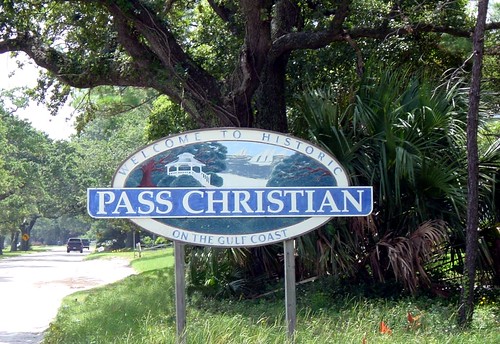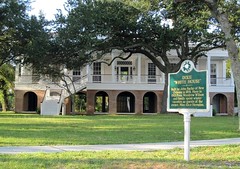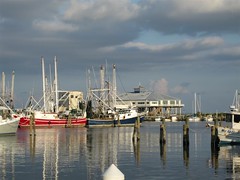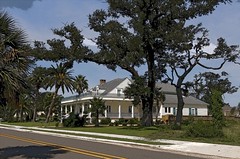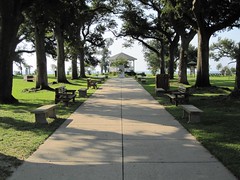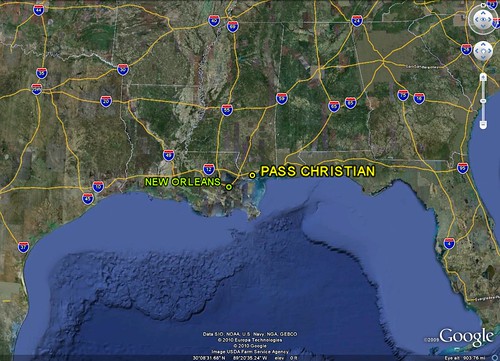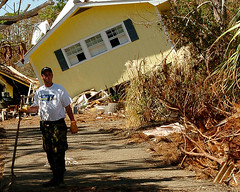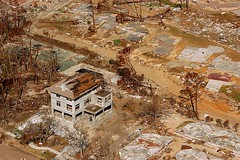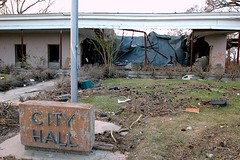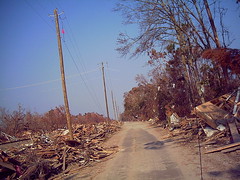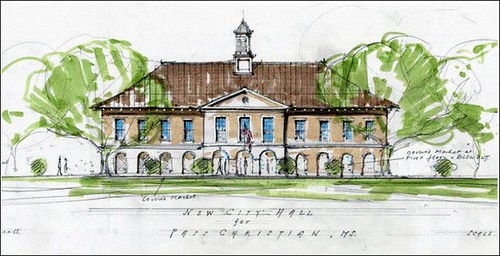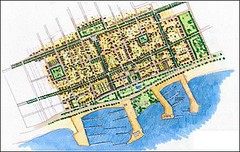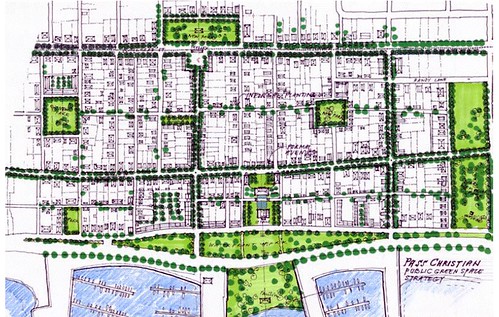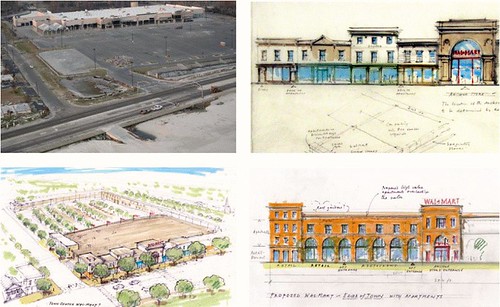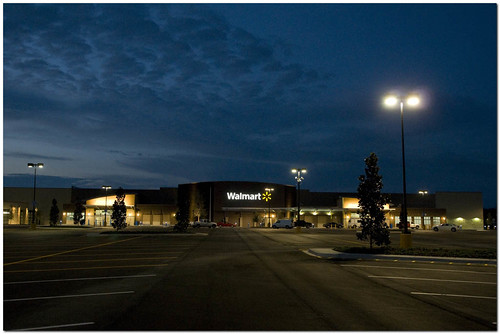What will become of Pass Christian? The impact of the oil spill on community

Posted May 3, 2010 at 1:30PM
“You’ve probably had your last really good Pass Christian oyster for a while,” Captain Louis Skrmetta of Ship Island Excursions told the (South Mississippi) SunHerald. “We’re looking at financial ruin from this. We’ve pretty much realized that it is over for us for this summer, maybe even next year; who knows.”
Pass Christian, a town of a few thousand on Mississippi’s Gulf coast, east of New Orleans and west of Biloxi, is struggling for survival again. Home to the South’s first yacht club and one of the Gulf Coast’s best historic districts, as well as the hometown of ABC News anchor Robin Roberts, the Pass has seen hard times before, and all too recently. But the waters of the Gulf are its lifeblood, the basis of its seafood industry and its tourism, and all that is now very much in jeopardy because of the giant puddle of sticky ooze that is making its way to the shore, wiping out whatever life is in its path. The town’s official web site describes the community's past challenges in an optimistic light:
“Pass Christian, the birthplace of yachting in the south, has long been known as a resort style village where cool sea breezes mingle with the fragrant scents of Magnolias and Pine trees. Ancient moss-draped Live Oaks cast their shadows along scenic drive and afford rest and relaxation to the passing traveler. Pass Christian was struck by two of the strongest Hurricanes to ever hit the United States, Hurricane Camille in 1969 and Hurricane Katrina in 2005. We are much like the Ancient Oaks that have witnessed the history of this wonderful sea side village. We are still here, enjoying the view of the Mississippi Sound, the gentle breezes, enjoying a bowl of gumbo with friends, and sharing our history.
“Come visit our village, taste some of the best oysters ever pulled from the sea or buy shrimp fresh from one of the shrimp boats docked in the harbor, see historic homes that rival Charleston and learn of two ladies, Camille and Katrina who blew through leaving high water marks and memories.”
Pass Christian’s Wikipedia entry reports that, of its approximately 8000 homes at the time, “all but 500 were damaged or destroyed” by Katrina in 2005. The hurricane totally destroyed the public library and the nearby city hall. “In early 2007, although rebuilding was underway in much of the city, a large portion of empty, deserted homes and other structures remain.” You know how, when we discuss the impacts of Katrina on New Orleans, we stress that it was not the direct effect of the hurricane that devastated the city but the failure of the levees and subsequent flooding? That’s because the Mississippi coast took the direct hit.
Perhaps it is telling that the web site of the Pass Christian Historical Society has not been updated since 2005. The images accompanying this post speak more eloquently than words can. But the Pass has been on the rebound, however slowly.
This is in part because Pass Christian was a focus of the post-Katrina Mississippi Renewal Forum to which so many new urbanist architects and planners donated their time and expertise. Working around the clock with local officials and other volunteers, the teams crafted foundations for first-class recovery plans for the built environment, stressing traditional forms that respected and built upon the community’s historic character. There is a terrific and highly recommended 42-page summary of recommendations comprising concepts for a new city hall, walkable streets, a pattern of green spaces, respect for nature, transit routes and more. The Renewal Forum’s plans for Pass Christian could, if implemented, do for that community what the justly lauded Sustainable Comprehensive Plan is doing for post-tornado Greensburg, Kansas.
The plans were embraced by the locals, culminating most notably in the adoption of a new, form-based zoning code in 2008 that would enable exactly the kind of rebuilding that the town needed and still needs.
Perhaps the most striking feature of the plans for Pass Christian was a concept for the rebuilding of the town’s severely damaged Walmart with an innovative, pedestrian-friendly design that maintained all of the store’s square footage, needed parking and functionality while allowing it to serve as an anchor of a mixed-use development. These drawings show the damaged store redesigned as a mixed-use walkable block, wrapped with a combination of smaller boutique stores. Note how the presence of trees changes the parking lot, which would be moved to the rear:
There was considerable optimism around this concept, coming precisely at a time when the retailing giant was stressing sustainability and community in its image advertising and big-picture thinking. The prospect of an urbanist Walmart in Pass Christian was hailed in USA Today, and the company agreed to participate in a local planning charrette, touting examples of other locations where it was building more urban facilities.
Talk about wishful thinking. In the end, the company built its usual sprawling SuperCenter, a one-story "landscraper" with a giant parking lot, as unwelcoming to pedestrians and as alien to local character as ever.
The collapse of the talks with Walmart illustrates how fragile even the best concepts for sustainable planning and rebuilding can be, especially in the face of desperation (the city authorities quickly gave an exemption from its new zoning code to accommodate the retailer). Now, as the massive oil spill approaches the coast, all the hard work of thoughtful restoration planning is in peril. How can businesses find money for sustainability when they can’t find customers? How can the town address gaps in its street grid or construct new green squares when the community’s very reasons for existence are in jeopardy? Right now survival comes first, and who can blame them? One can recover from a 1969 hurricane over time, if the next disaster doesn't occur until Katrina 36 years later. But a major economic disaster on top of a recession just five years after a major natural disaster? That's different.
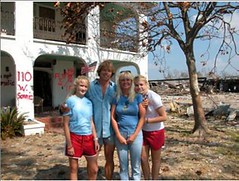 “I’m not so much worried about when [the spill] will get here but instead more about how long it will be here,” commercial fisherman Captain Tom Becker told Bobby Cleveland of the (Jackson) Clarion-Ledger. “I’ve pretty much blown off this season, and now I’m worried about future seasons. There’s a lot of us in the same boat — charter fishermen, commercial fishermen and essentially everybody on the Gulf Coast since the water is so much a part of our economy.”
“I’m not so much worried about when [the spill] will get here but instead more about how long it will be here,” commercial fisherman Captain Tom Becker told Bobby Cleveland of the (Jackson) Clarion-Ledger. “I’ve pretty much blown off this season, and now I’m worried about future seasons. There’s a lot of us in the same boat — charter fishermen, commercial fishermen and essentially everybody on the Gulf Coast since the water is so much a part of our economy.”
Writing in the SunHerald, Robin Fitzgerald reports that attorneys representing the owner of a Pass Christian seafood company have filed a class-action lawsuit naming Cameron International Corporation, BP, Transocean, Halliburton Energy Services Inc. and Hyundai Heavy Industries Co. as defendants. The suit represents all Mississippians who live, work in or derive an income from the coastal zone who may sustain loss or damage that would not have occurred "had the defendants exercised the high degree of care imposed on them.”
